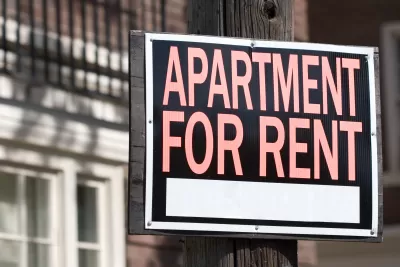Formerly incarcerated people are often barred from publicly subsidized housing, putting them at higher risk for homelessness and recidivism.

The U.S. Department of Housing and Urban Development (HUD) is taking aim at housing discrimination against formerly incarcerated people, reports Eleanor J. Bader for Truthout.
The article describes the history of the ‘one-strike rule’ that kept people with criminal records out of public housing and new efforts being made by state and federal authorities to limit discrimination in publicly subsidized housing. “The state of New Jersey and a small number of cities have passed Fair Chance for Housing laws to limit what landlords can ask prospective tenants and restrict how far back they can go in someone’s personal history.” A New York City law limiting how far landlords can search a criminal record and when they can conduct background checks will apply to both public and private multi-family housing.
“In addition, the federal Department of Housing and Urban Development (HUD) has proposed regulations for public and HUD-supported housing and to protect those at risk of eviction following the arrest and conviction of a household member.” HUD’s newly proposed rule would require public housing authorities (PHAs) to “consider mitigating circumstances” and factors beyond a criminal record to make the process more fair and equitable.
As Bader notes, “Tenants and advocates know that the HUD regs, as proposed, are only a small step toward housing justice, which will also require massive outlays of money for the construction or renovation of units that are truly affordable to low- and moderate-income people. At the same time, they know that even tiny changes can help.”
FULL STORY: HUD Targets Public Housing Discrimination Against Formerly Incarcerated People

Study: Maui’s Plan to Convert Vacation Rentals to Long-Term Housing Could Cause Nearly $1 Billion Economic Loss
The plan would reduce visitor accommodation by 25,% resulting in 1,900 jobs lost.

Alabama: Trump Terminates Settlements for Black Communities Harmed By Raw Sewage
Trump deemed the landmark civil rights agreement “illegal DEI and environmental justice policy.”

Why Should We Subsidize Public Transportation?
Many public transit agencies face financial stress due to rising costs, declining fare revenue, and declining subsidies. Transit advocates must provide a strong business case for increasing public transit funding.

Paris Bike Boom Leads to Steep Drop in Air Pollution
The French city’s air quality has improved dramatically in the past 20 years, coinciding with a growth in cycling.

Why Housing Costs More to Build in California Than in Texas
Hard costs like labor and materials combined with ‘soft’ costs such as permitting make building in the San Francisco Bay Area almost three times as costly as in Texas cities.

San Diego County Sees a Rise in Urban Coyotes
San Diego County experiences a rise in urban coyotes, as sightings become prevalent throughout its urban neighbourhoods and surrounding areas.
Urban Design for Planners 1: Software Tools
This six-course series explores essential urban design concepts using open source software and equips planners with the tools they need to participate fully in the urban design process.
Planning for Universal Design
Learn the tools for implementing Universal Design in planning regulations.
Smith Gee Studio
Alamo Area Metropolitan Planning Organization
City of Santa Clarita
Institute for Housing and Urban Development Studies (IHS)
City of Grandview
Harvard GSD Executive Education
Toledo-Lucas County Plan Commissions
Salt Lake City
NYU Wagner Graduate School of Public Service





























